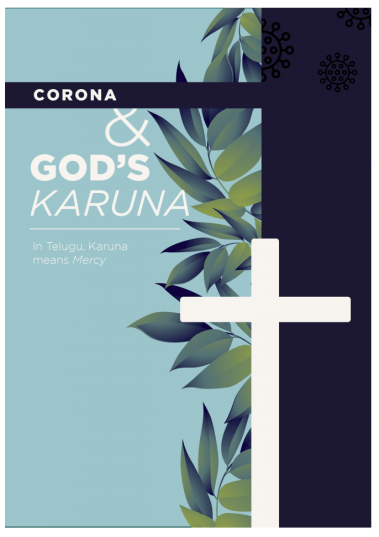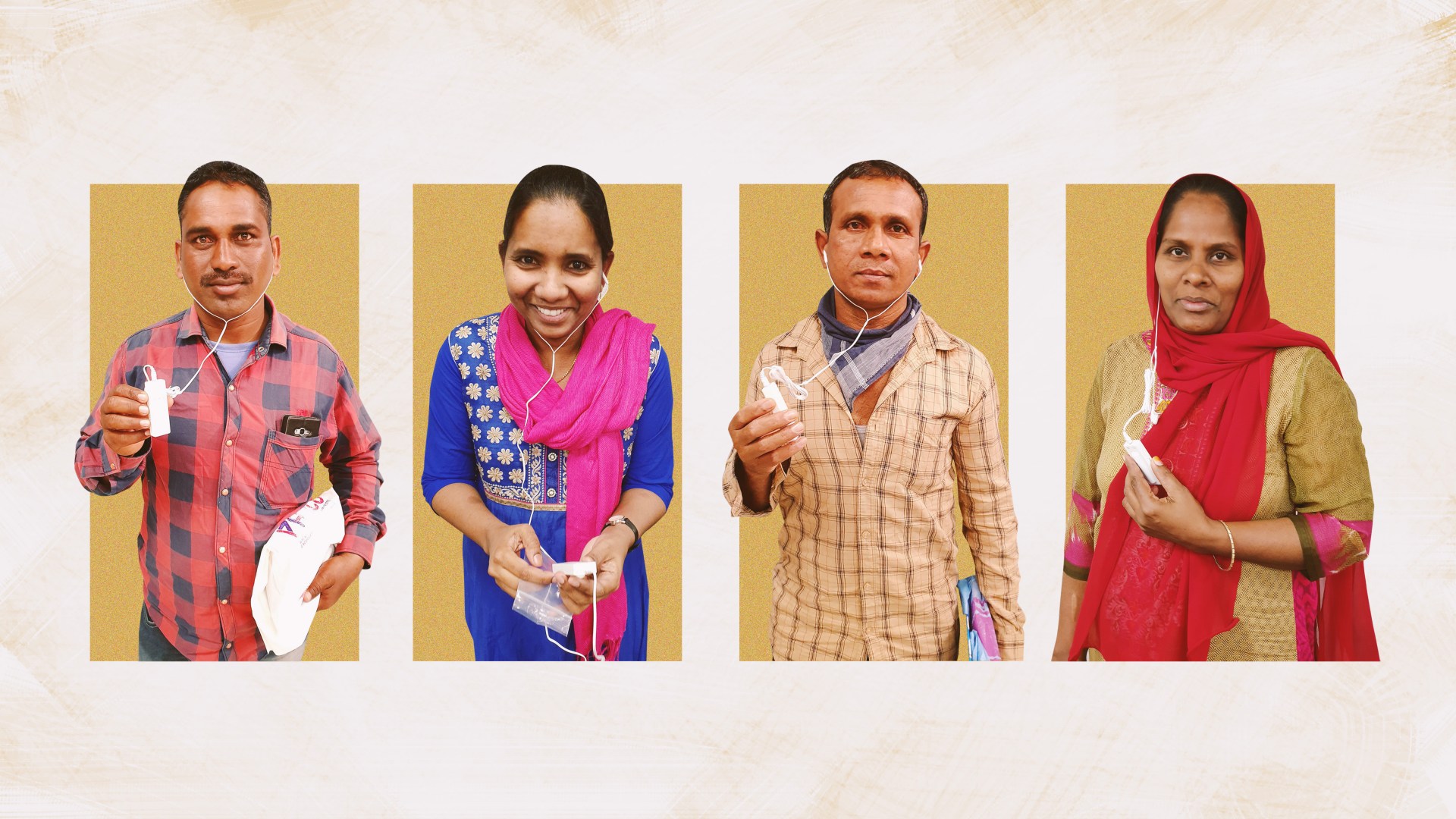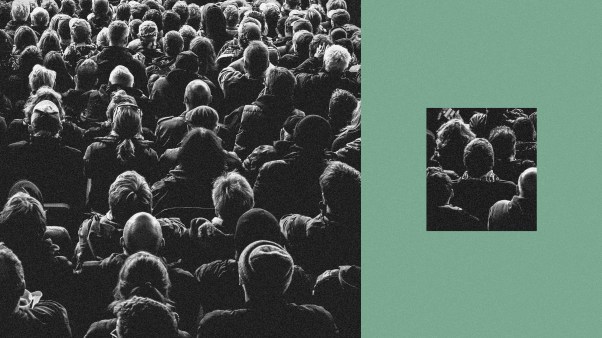There is no social distancing in a labor camp.
Living in cramped conditions, sometimes 10 to a room, migrant workers in the Gulf are widely considered among the international communities most vulnerable to the new coronavirus.
Seeking a share of the region’s petrodollars as remittances for their poor families and communities back home, migrant laborers far outnumber the Middle Eastern region’s citizen population—as high as 80 percent in the United Arab Emirates (UAE).
And hailing primarily from Asian nations such as the Philippines, Indonesia, and India, they make up the great majority of the region’s more than 200,000 confirmed COVID-19 cases.
Yet from one of their languages emerges a homonym that may birth hope for the languishing workers.
“It is not corona, but karuna, which means mercy in Telugu,” said Prasad, a migrant worker from India, to the Bible Society in the Gulf (BSG).
“God is giving us the opportunity to turn to Him.”
There are 20 million Indian migrants worldwide, and 1.5 million are Telugu speakers working in the Gulf states. Many have lost their jobs or had their salaries reduced due to the economic shutdown.
The Bible society seized on Prasad’s observation to publish a new booklet in Telugu and English, appropriately titled God’s Karuna.
 Courtesy of Bible Society in the Gulf
Courtesy of Bible Society in the GulfIts content reflects the upside-down nature of the COVID-19 world—and of God’s kingdom. There are frequent references to “humbled nations,” “greedy people,” and “exploitation of the poor.”
Though reputable Gulf agencies exist to recruit and employ migrant labor, the BSG has been a frequent critic of the “slave-like conditions” suffered by many.
“Even the strong are feeling weak now,” said general secretary Hrayr Jebejian.
“We want to show migrant workers there is a God who humbles everyone, but who can lift them up.”
With the booklet peppered with Bible verses about the wages of sin and the promises of God, Jebejian is eager to provide perspective to the Gulf’s rich and poor alike.
But unable to distribute the booklet due to coronavirus restrictions—its 14 regional bookshops are closed—the BSG is circulating a PDF version through the popular WhatsApp messaging service. There is also an audio version, given that 2 in 5 Telugu in the Gulf are unable to read.
Jebejian estimates their network has distributed up to 10,000 copies. The migrants—and their pastors—must spread it further.
He can only hope that pre-coronavirus trainings are now paying dividends.
“COVID-19 has not added work, it has added a weight of responsibility and anxiety,” he said. “We teach people they have to rely on God; now we have to rely on him ourselves.”
In the first few months of 2019, the BSG visited 21 churches and taught Bible storytelling techniques to over 300 leaders.
Now under 22-hour daily lockdown in Kuwait, Jebejian supervises BSG facilitation of three, 100-strong WhatsApp discussion groups for pastors in English, Telugu, and Arabic.
“I was feeling very lonely, unable to go to church and have fellowship,” Afaf, a Greek Orthodox priest, told the BSG. “I really need such encouraging messages in this very difficult time.”
And Naveen, a migrant worker from India, told them her cousin is distributing earlier BSG literature in a Dubai hospital where she works as a nurse.
“It’s very draining working at the hospital with COVID-19 patients,” she said, “[but] sharing the gospel with patients and their families has worked miracles.”
A different kind of miracle would be helpful for Kanad Hospital in the UAE’s oasis city of Al Ain. But that this Christian medical mission exists at all is already due to both divine—and royal family—favor.
Founded in 1960, until December last year it was known as Oasis Hospital. But to close the UAE’s Year of Tolerance, Sheikh Mohammed bin Zayed, Crown Prince of Abu Dhabi, surprised the administration by decreeing a name change in honor of the original missionary founder.
Pat Kennedy, who died in 2000, served the then-undeveloped emirate until 1975. His wife Marian passed away last year. (Local Bedouins pronounced their surname as “Kanad.”) Bin Zayed was born under their care, in 1961.
The hospital’s motto: Healing the Sick and Proclaiming the Kingdom of God.
“We do what we do because Jesus loved us first,” said Isaac Olatunde, “and we want to show people this love.”
But the Nigerian interim director of spiritual services, who came to the hospital in 2005, said COVID-19 is shaking their financial stability.
As around the world, people are avoiding hospitals unless absolutely necessary.
Though more than 70 percent of Kanad’s patients are Emirati citizens, all but two of the 600 staff—including 80 doctors—are migrant workers. Sixty percent are Christian; save for a few Hindus, the rest are Muslim.
“People are crying out to God as never before,” said Olatunde, whose mandate includes serving staff of all religious backgrounds.
“But it is a very uncertain time for our hospital.”
A few staff members have contacted the coronavirus, sidelining others into quarantine. But beyond the temporary reduction in personnel, there has been a dramatic drop in revenue.
Unwilling to lay off their most vulnerable, top executive leadership accepted a steep cut in salary. And better off employees contribute to a “Kindness Bank” with food and monetary donations.
Meanwhile, Olatunde has made frequent use of his degree in counseling from Gordon-Conwell Theological Seminary.
“As a Christian hospital, we suffer with our staff,” he said.
By contrast, 197,000 Indians have registered for repatriation from the UAE. Not only have thousands in the Gulf lost their jobs, they are facing increasing social stigma.
“Aren’t people supposed to leave during crises?” said Hayat al-Fahad, a popular Kuwaiti actress.
“I swear by God, put them in the desert. I am not against humane treatment, but we have gotten to a point where we’re fed up already.”
Impacting migrants further is the possible cultural shift caused by the economic impact of the coronavirus. Oman has ordered the public sector to replace migrant labor with citizen employment. Saudi Arabian media is clamoring for the same.
After originally not cooperating with requests to facilitate the “logistical nightmare” of relocating 3.2 million migrants in the UAE, last week India began repatriation.
Bin Zayed has pushed back against any anti-foreigner sentiment.
The UAE offers free testing for all citizens who show symptoms or have been in contact with positive cases. Migrants laborers are included.
But the crown prince’s efforts include the spiritual, coordinated with the nation’s churches.
“May God protect you, [and] protect the country you’re in,” he said, “which you are loyal to like its own citizens.”
Andy Thompson, senior Anglican chaplain at St. Andrew’s Church in Abu Dhabi, was tasked by the UAE’s Department of Community Development to assemble an international chaplaincy team for COVID-19 care. Gathering supermarket vouchers for the poor, he has worked with the government to coordinate food delivery in the camps.
And on May 14, Thompson, who serves on the executive committee of the Gulf Christian Fellowship, was the unofficial UAE Christian representative in the online worldwide interfaith day for prayer to end the pandemic.
Called for by the UAE-hosted Higher Committee of Human Fraternity, the event continued cooperation from last year’s declaration, signed by Pope Francis and Ahmed el-Tayyib, Grand Imam of Egypt’s al-Azhar.
“In this time of heightened spiritual awareness, God is calling us to look for the values which are important to him: compassion, mercy, and neighborliness,” said Thompson.
“I am heartened by the goodwill I see between communities.”
Similarly, the Christian Council of Asia encouraged its churches to better support migrants in this time of need. The Roman Catholic community in the Gulf is extending humanitarian food deliveries to 7,000 people in the labor camps. And the 40 denominations that share the church facility at Kanad Hospital have launched Project Harvest, supporting those in Al Ain.
But back in Kuwait, as in the rest of the Gulf, the lockdown has shut the camps from all regular church ministry. Jebejian, like many, is fighting through the discouragement.
“We are a community-oriented mission, we work face-to-face,” he said.
“We need God’s karuna in this pandemic.”










